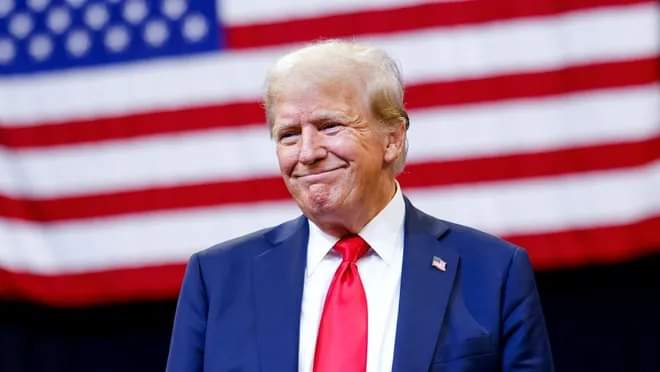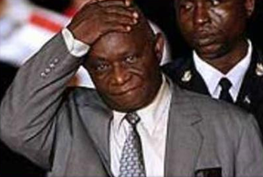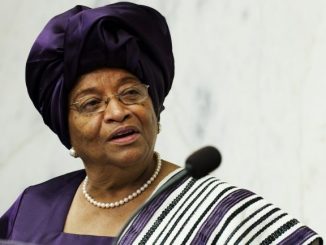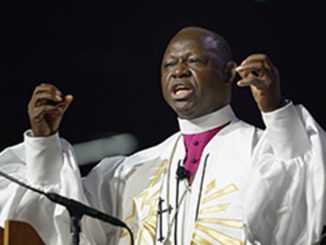
*The Return of Donald Trump: New Realities for Sierra Leone and Africa*
L. Kotor- Kamara Esq.
Introduction
Donald J. Trump’s dramatic return to the U.S. presidency in 2024 has triggered a wave of speculation across Africa. Known for his staunch “America First” policy, Trump’s renewed leadership signals a likely retreat from the traditional pillars of U.S. engagement in Africa—economic aid, diplomatic support, and health initiatives. For Sierra Leone, this shift has immediate, practical implications. As Trump’s agenda takes shape, the question is not only what Sierra Leone can expect from America, but also how it can adapt to a world where Washington’s attention is elsewhere.
1. Reduced U.S. Engagement and Sierra Leone’s Political Shift
In his first term, Trump set a precedent of limited engagement with Africa, focusing only on regions where American strategic interests were clear. Now, with his focus squarely on U.S. priorities, Sierra Leone and other African nations face the practical reality that America’s support could dwindle.
• Less Diplomatic Backing: Trump’s return suggests reduced interest in Africa’s political landscape, which could mean less U.S. support for democratic stability, human rights, and governance initiatives. For Sierra Leone, this withdrawal makes it essential to forge alliances with regional powers, like Nigeria and South Africa, and strengthen ties within the African Union to ensure the political and economic support the U.S. once provided.
• A Push for Self-Reliance: Trump’s policies emphasize self-sufficiency, but for Sierra Leone—a nation still developing economically—this presents a challenging shift. With fewer resources likely to come from Washington, Sierra Leone may need to seek new international allies and prioritize local economic growth strategies that reduce dependence on Western aid.
2. A Stark Economic Reality: Limited U.S. Trade and Stronger Competition with China
During his first presidency, Trump maintained the African Growth and Opportunity Act (AGOA) but showed little interest in expanding trade with Africa. His return to office brings more of the same, leaving Sierra Leone with an undeniable economic reality.
• Minimal Expansion of U.S.-Sierra Leone Trade: AGOA will continue, but with no sign of new U.S.-Africa trade initiatives under Trump, Sierra Leone’s exports to America are unlikely to grow. For Sierra Leonean businesses hoping to access the American market, the path forward is constrained, meaning they must focus on alternative markets within Africa and with global powers like China and the EU.
• A Growing Chinese Influence: With Trump prioritizing U.S. economic interests over diplomatic partnerships, China’s influence in Sierra Leone is poised to expand further. For years, China has been a major investor in infrastructure, mining, and agriculture across Africa, including Sierra Leone. In this new era, China may cement its place as Sierra Leone’s top partner, providing essential funding for projects where American support is absent. But this reliance on Chinese capital also presents risks, from debt concerns to geopolitical influence, underscoring the need for careful, diversified international relations.
3. Health and Humanitarian Concerns: Sierra Leone’s Healthcare Challenges Intensify
Health has been a critical area of U.S. involvement in Africa, especially in Sierra Leone, where aid programs have supported public health and emergency response systems. Yet Trump’s budgetary policies and disinterest in global health initiatives threaten this lifeline.
• Reduced U.S. Health Funding: Trump’s first term proposed significant cuts to global health programs. With his re-election, Sierra Leone may see a decrease in American health support, forcing the country to rely more on local resources and support from international organizations. Sierra Leone, still feeling the impact of past Ebola crises, may struggle to maintain public health standards without these critical funds.
• COVID-19 Lessons and Future Preparedness: Sierra Leone’s health system faced severe strain during the COVID-19 pandemic, and with limited U.S. support, the country’s pandemic preparedness remains a concern. If Trump’s foreign aid cuts extend to health programs, Sierra Leone may need to bolster regional health alliances or rely on international donors to ensure it can respond to future health emergencies.
4. Security and Counter-Terrorism: Limited Support with Local Implications
While the U.S. under Trump is likely to remain involved in Africa’s counter-terrorism efforts, this support will focus only on regions critical to American interests. For Sierra Leone, where terrorism threats are less direct, security aid from the U.S. may not be a priority.
• Increased Reliance on Regional Security Efforts: With limited U.S. military assistance expected, Sierra Leone’s security strategy may need to focus on regional partnerships. Collaborative efforts with the Economic Community of West African States (ECOWAS) and African Union peacekeeping initiatives will be essential to ensure local stability. Strengthening these alliances could provide Sierra Leone with a safety net as U.S. security involvement shrinks.
• Focus on Internal Stability: In Trump’s absence from regional security issues, Sierra Leone’s government may need to invest more in local law enforcement, border security, and intelligence capabilities to ensure stability without foreign backing. This shift may challenge the nation’s budget but could lead to a stronger, more self-reliant internal security system.
5. Opportunities and Challenges: A Crossroads for Sierra Leone
While Trump’s return to office creates challenges, it also opens new doors for Sierra Leone to redefine its role on the world stage. With reduced U.S. involvement, Sierra Leone has a chance to rethink its economic, political, and diplomatic strategies.
• Encouraging Private Investment: Trump’s policies encourage self-reliance, a challenging but potentially transformative message for Sierra Leone. The government could prioritize policies that attract private-sector investment and support entrepreneurial growth, creating jobs and reducing dependence on foreign aid. Focusing on sectors like tourism, agriculture, and natural resources may help Sierra Leone build an economy less reliant on fluctuating international support.
• Diversifying Alliances and Reducing Dependency: Trump’s renewed presidency underscores the necessity for Sierra Leone to expand its partnerships beyond traditional Western allies. By strengthening ties with the EU, Middle Eastern countries, and regional partners in Africa, Sierra Leone can reduce its dependency on the U.S. while creating a balanced and resilient foreign policy framework.
Conclusion
Donald Trump’s return to the presidency brings a sobering reality for Sierra Leone. As Washington turns inward, Sierra Leone faces a world with fewer guarantees from one of its most powerful allies. Yet this challenge also presents an opportunity for Sierra Leone to pivot toward self-reliance, strengthen regional ties, and diversify international partnerships.
In an era defined by unpredictability, Sierra Leone must prepare for a new global landscape—one where it will navigate through its own vision for prosperity and stability. Trump’s renewed leadership pushes Sierra Leone to make bold moves, adapt to emerging powers, and solidify its position in an interconnected world.




Leave a Reply